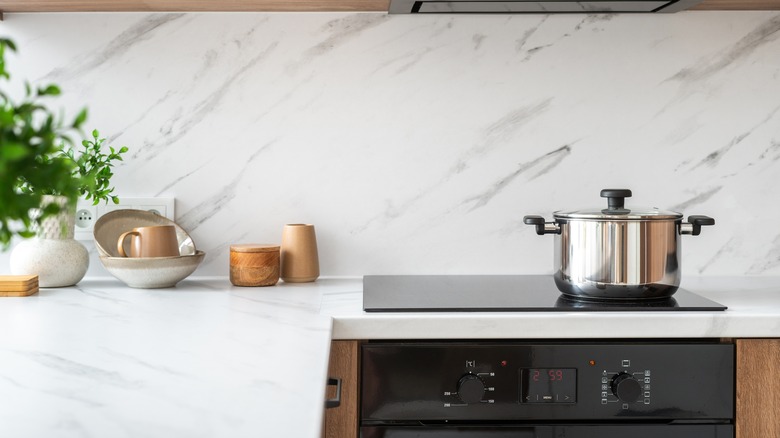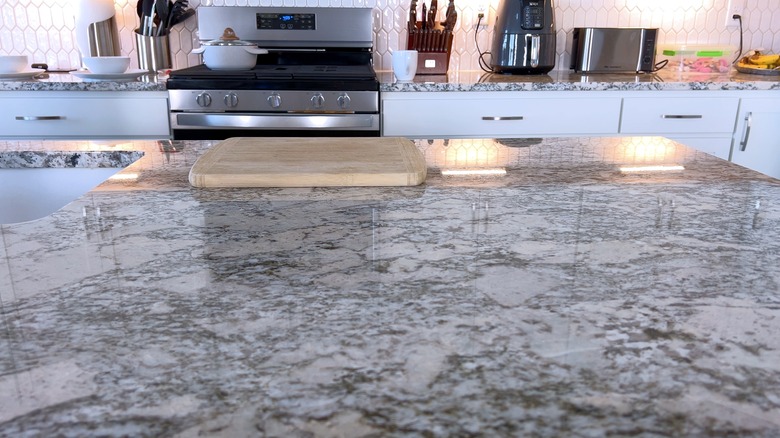The Best Countertop Material For Avid Bakers Who Spend A Lot Of Time In The Kitchen
We may receive a commission on purchases made from links.
If you're a serious baker, you know that not just any type of kitchen countertop will do. You want something that's durable, easy to clean, and can take a bit of heat when your latest batch of cookies comes straight out of the oven. Two of the best countertop materials for home bakers are quartz and granite. Both are known for their durability and style, but they each offer unique perks that make them great for handling the demands of baking.
Quartz, especially engineered quartz, is kind of a baker's dream. Engineered quartz is a combination of natural stone and resin, so it's non-porous. That means it doesn't absorb moisture or bacteria, so if you're working with ingredients like eggs or butter, you don't have to worry about germs getting into the surface. A quick wipe-down with a damp microfiber cloth is all you need to keep things clean and sanitary.
Quartz is also incredibly tough. It's resistant to chips and scratches, so whether you're working with heavy stand mixers or sharp knives, you won't need to stress about damaging the surface. But — there's always a "but" – quartz isn't as heat resistant as granite. Quartz has a heat resistance of only up to 150 degrees Fahrenheit compared to 450 degrees Fahrenheit for granite. The resin in quartz is more prone to warping or discoloration if you put hot pans or baking trays directly on the surface, so you'll need to use trivets (find four-packs at Amazon for only $10) to protect it from high heat. If you're the type to move quickly from oven to countertop, this could be something to keep in mind.
Granite or quartz: Which is best for bakers?
Granite, on the other hand, is a classic choice for a reason. Granite naturally stays cool to the touch, which is ideal if you're working with pie crusts, puff pastry, or anything else that needs to stay cold while you handle it. If you've ever rolled out dough and had it turn sticky too fast, you know how much of a game-changer a cool surface can be. Granite is also durable and, unlike quartz, can handle heat like a champ: Perfect if you're the type who pulls a tray of cookies out of the oven and slaps it right onto the counter. There won't be any warping and discoloration as long as it's not in contact with hot surfaces for hours at a time.
However, because granite is a natural stone, it's porous, and some types of granite require a bit more maintenance to keep them in top shape. You'll need to seal those granite countertops regularly (about once a year) to prevent them from absorbing oils, flour, or liquids. Without proper sealing, it could stain or even harbor bacteria.
So, which one should you choose? It really comes down to what you value most. If you're all about ease of maintenance and want something that's super durable and looks great, quartz is a fantastic option. But if you're more concerned about having a cool surface to work on and need something that can handle heat, granite might be the better choice. Whichever you choose, both quartz and granite will make your baking life a whole lot easier — and your kitchen a lot more stylish.

